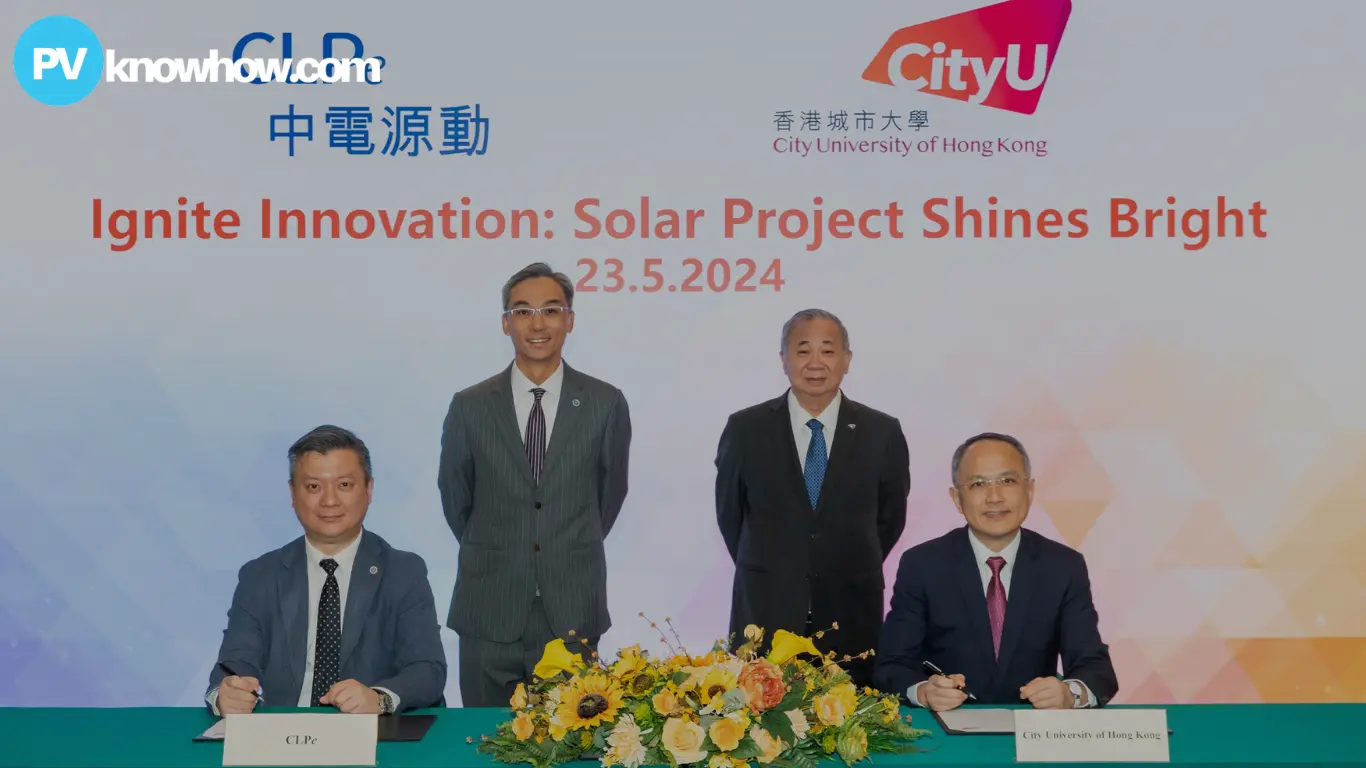City University of Hong Kong (CityUHK) and CLP Power Hong Kong Limited (CLPe) have partnered to conduct a study on low-carbon energy consumption technologies on campus. This collaboration aims to accelerate decarbonization efforts and promote the adoption of renewable energy solutions powered by advanced, high-efficiency bifacial solar panels and solar power systems.

Image: Collected
Renewable Energy Adoption
As part of the initiative, CLPe will leverage its expertise and technology to provide a comprehensive "solar power system-as-a-service" solution, utilizing advanced bifacial solar panels that can capture sunlight from both sides.
The solar power system will be installed on the rooftops of over 30 campus buildings, covering a total floor area of up to 4,500 square meters. This system is projected to generate 1.15 GWh of electricity annually, powering approximately 280 households and reducing CO2 emissions by 450 tonnes per year.
Additionally, CLPe plans to install a real-time monitoring system to track the system's performance and enable remote control. Beyond energy generation, the project will serve as a platform for scientific research and innovation led by CityUHK.
The project will also involve testing passive radiative cooling paint developed by i2Cool, a CityUHK affiliate. This innovative paint reflects sunlight and reduces building temperatures, potentially enhancing the performance of the solar power system.
As CityUHK President Professor Freddy Boey stated, "Our university is committed to sustainable development and addressing 21st-century challenges through innovation. This collaboration with CLPe exemplifies our efforts to tackle urgent environmental issues."
Future Collaboration and Expansion
Scheduled to commence in the third quarter of this year and conclude in the first quarter of 2025, this solar project marks the initial phase of a broader collaboration between CLPe and CityUHK. Both parties are committed to working together on various initiatives, including energy conservation, carbon reduction, and sustainable development.
This collaborative project between CLPe and City University of Hong Kong exemplifies how academia and industry can work together to address the challenges of a low-carbon economy. By promoting education on energy use and deploying advanced solar technologies, this initiative contributes to a more sustainable future.
